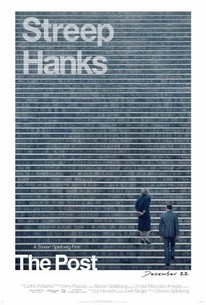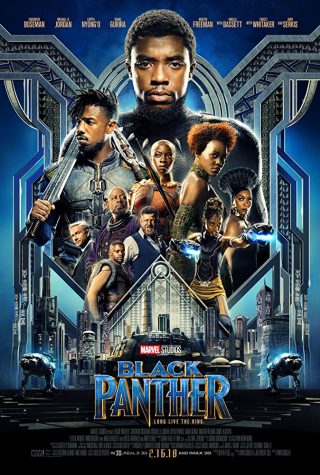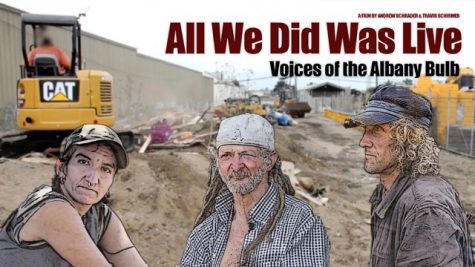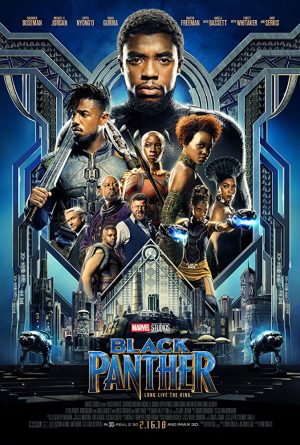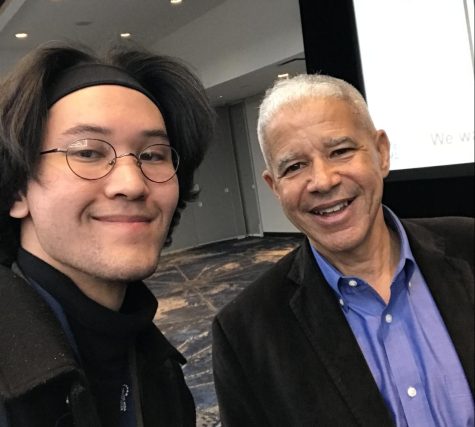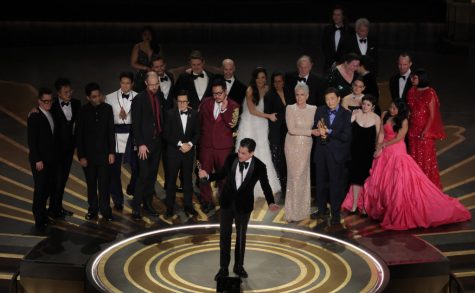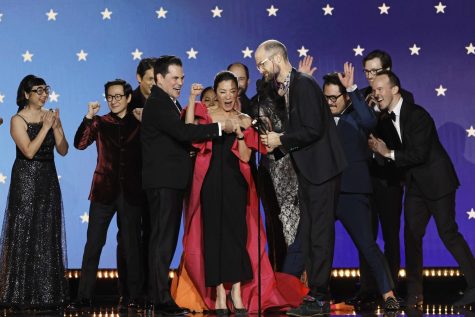‘The Post’ has the most to boast from coast to coast
February 14, 2018
“The Post,” directed by Steven Spielberg, was a surprising joy to watch. It isn’t action packed like many other past Spielberg movies such as “Saving Private Ryan,” “Minority Report” or the Indiana Jones saga. But it does have a certain charm movie enthusiasts and Spielberg fans such as myself wouldn’t trade for the world.
The film explores the now-famous Pentagon Papers, which were documents about how the government knew that the Vietnam War was a losing fight from the start leaked by Daniel Ellsberg, an anonymous source and a trusted government employee.
“The Post” takes viewers back in time to 1971. It will have you breathe in that old smell of newspaper and hear that loud typewriter clacking that we as a society have unfortunately forgotten or never knew, depending on how old you are.
The film explores how The Washington Post was also given documents by Ellsberg and how they struggled with the decision of whether they should publish them to the public or not.
The film itself has much to teach us about how much things have changed in society since the 1970s. However, it stays relevant because of the parallels the story has with journalism and the government today.
In “The Post,” the government does not want these confidential documents to be published and brought out to the public, but the newspaper editors at The Post decide otherwise and they do publish.
Today, the government not only wants journalists to stay away from the truth, but they call the media fake news. “The Post” shows that the country was being fed lies for years and years.
The current administration is also very keen on keeping us informed with “alternative facts,” so the film is similar in that sense to today’s world of journalism and government.
There are many differences from 1971 to 2018 that “The Post” shows. Of course there are the obvious ones with entire rooms full of people reading a newspaper. These type of scenes guarantee a small chuckle from even the most humorless of tech users. It gives the younger viewer a moment of laughter, and the older viewer a touch of nostalgia.
Spielberg also sprinkles bits and pieces of his signature style throughout the film. He has the camera follow a young reporter through the various pathways and process of a news story.
Spielberg has his signature lighting of the bright sunlight coming through the blinds and hitting the actors’ profile, creating a beautiful contrast. He also uses multiple extreme close-ups of the printing press machines in the newspaper rooms. So, do expect that “Spielberg-esque” vibe throughout.
While there were definitely small differences between news production and consumption, the ones that stuck out to me weren’t the technological ones. Ms. Graham, played by Meryl Streep, is the owner of The Washington Post, but she also holds a close friendship with Robert McNamara, the secretary of defense who played a key role in escalating the United States involvement in the Vietnam War.
Today, we do not see the government working closely with the press. We would likely never see that with the current administration because of how bad relations are with the press.
The relationship between the two wasn’t as bad as it is today. “The Post” shows how the government does pay some respect to the free press, in the sense that they see them as trusted journalists who tell the truth.
The reason the government tells The New York Times and The Washington Post not to publish the Pentagon Papers is because they acknowledge the fact that they are dealing with journalists who who hold a certain credibility.
The difference in today’s administration is that they often do not see the media as a reputable source of information or truth. People used to not only read newspapers, but they also believed in the journalists, the brave men and women who put out those newspapers for the public.
That’s not the case today because of how the current administration handles the truth and the media in general. It’s a dangerous problem, and “The Post” does an amazing job of showing this by contrasting 1971 to 2018.
“The Post” is an excellent movie that not only takes us back in time and shows us similarities to today’s world of journalism, but more importantly it shows us how much the public’s perception of it has changed.
Overall, the film is a wake up call to everyone, young and old, to unapologetically seek the truth in a world of lies.




